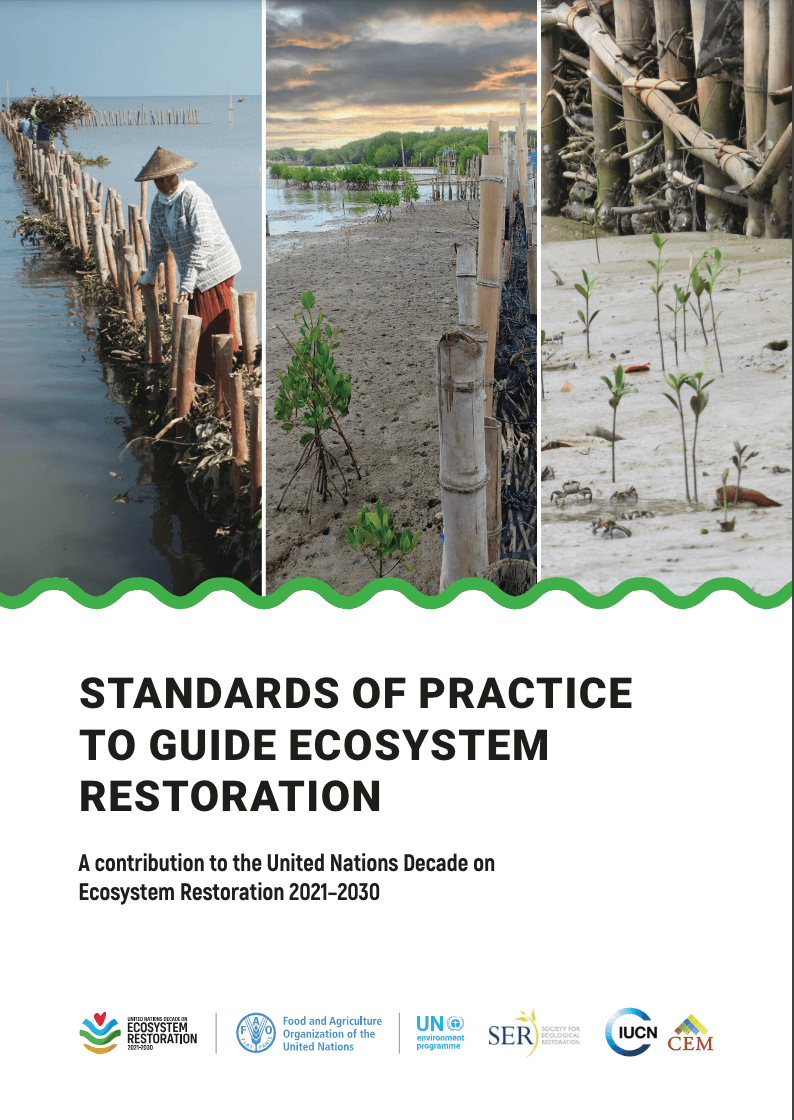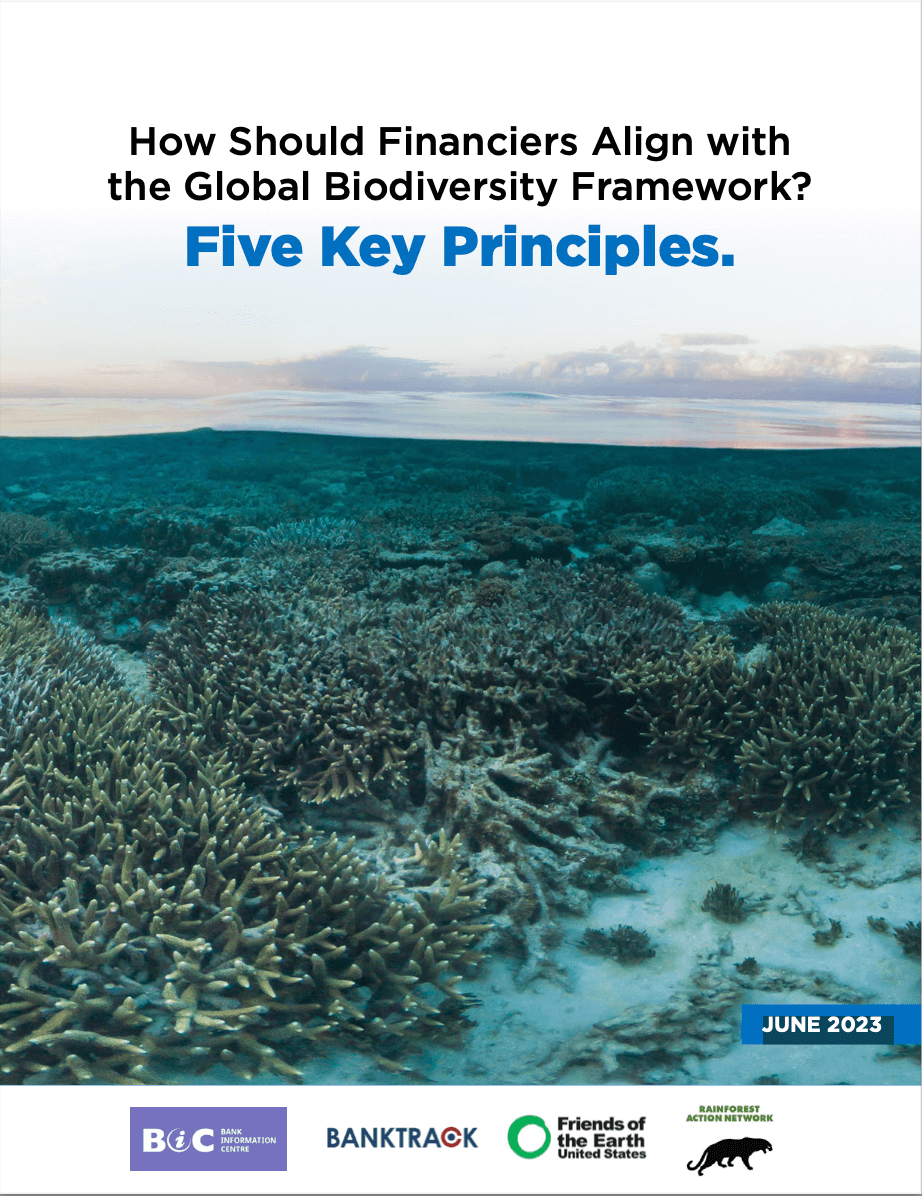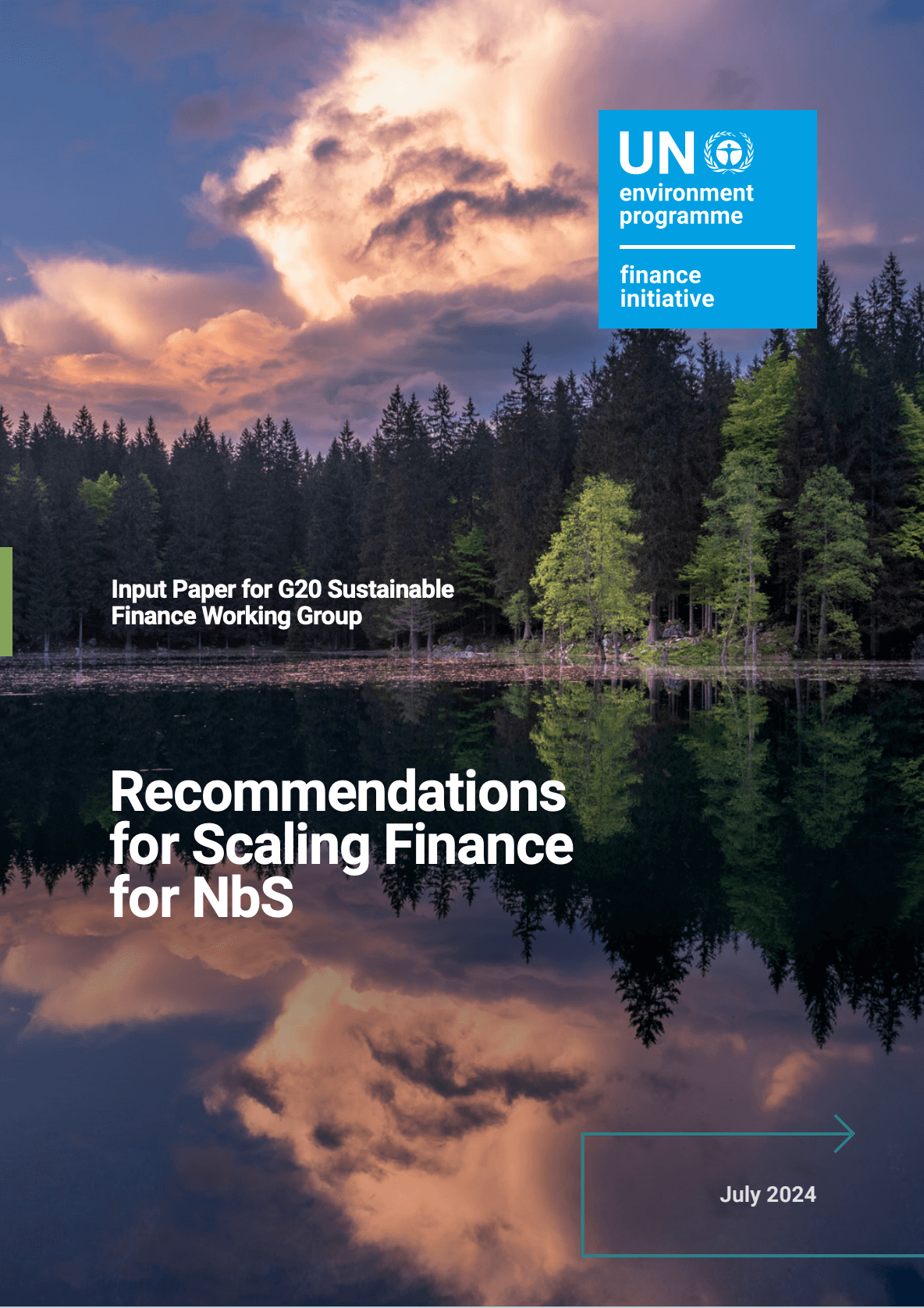Recommendations for scaling finance for NbS
Detalles
This document provides the G20 Working Group on Sustainable Finance (SFWG) with recommendations on regulatory frameworks that can scale up financing for nature-based solutions (NBS). The document builds on the lessons learned and conclusions of UNEP's annual report on the state of finance for nature, which tracks financial flows against the financing needed to maximize the potential of NBS to help address climate, biodiversity and environmental degradation. |
Recursos relacionados

Standards of practice to guide ecosystem restoration: A contribution to the United Nations Decade on Ecosystem Restoration 2021-2030
The United Nations Decade on Ecosystem Restoration 2021-2030 aims to prevent, halt and reverse ecosystem degradation and restore biodiversity and…

How Should Financiers Align with the Global Biodiversity Framework? Five Key Principles
How should global funders align with the Global Biodiversity Framework (GBF)? The following briefing note recommends that funders commit to…

Finance and Biodiversity. Overview initiatives for financial institutions
The overview of biodiversity-related initiatives for financial institutions aims to help financial institutions understand what initiatives exist and who is…


